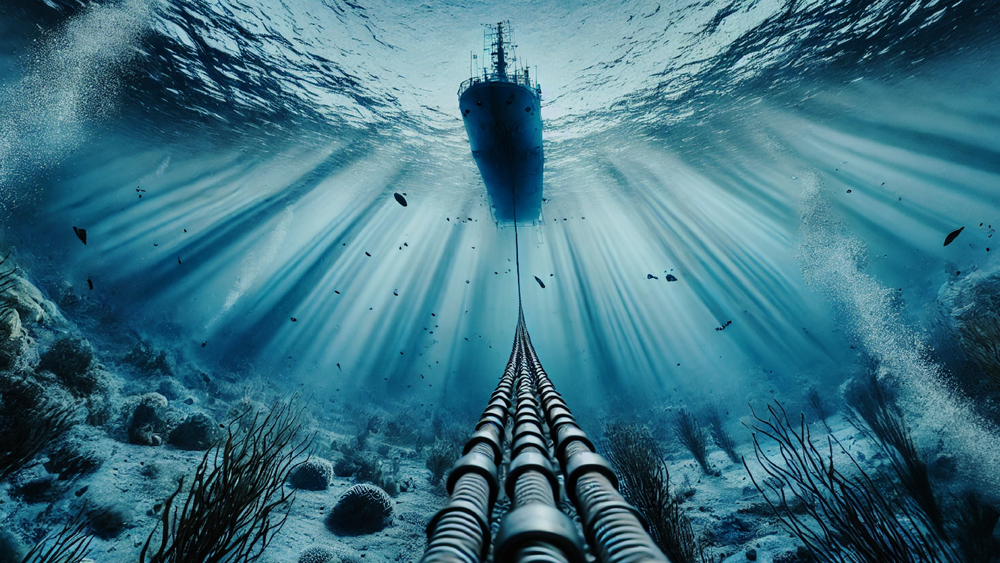Challenge
Multi-week offshore surveys live or die by cable reliability. In heavy seas, a failed source umbilical can burn ship time, burn budget, and jeopardize data quality. On a Titan-class seismic vessel, a spare had to be rushed into service; the crew still faced a potential standstill without the right parts, tools, and know-how to repair the damaged line. The real ask: avoid downtime while improving the cable design so the next storm doesn’t repeat the story. Stronger yet lighter, stable power/optics, and better terminations/handling for repeated launch & recovery.
Solution
DeRegt didn’t just ship parts, we showed up and fixed the problem. Within hours, a field engineer was on board with the right tools: mechanical termination gear and repair kits for pneumatic (air), electrical, and fiber-optic work. First, we found the real cause (was it the cable, the termination, or the deck equipment). Then we cut out the damaged section, moved the termination onto good cable, and got the line back in service. We also trained the crew on proper handling and termination so the issue wouldn’t repeat.
Back on shore, we turned what we saw at sea into design upgrades. Wherever failures tended to happen, we strengthened the cable there, without making it thicker (same outer diameter). We added extra protection around the fiber optics and used solid-machined parts in high-stress spots for extra toughness. Because weather windows are short, we agreed a practical spares plan with the operator: what to keep on the vessel and what DeRegt keeps in stock, so repairs aren’t delayed by long lead times. Our rule: repair when safe and sensible; replace only if you must.
Just as important, the crew had near-daily access to DeRegt engineers. That tight feedback loop (deck observations, quick design tweaks, verified builds) kept improvements moving fast. Over time, the cable family became stronger yet lighter, allowing wider source/streamer spreads without making handling harder. That’s exactly what modern offshore surveys need.
Result
The immediate result: the spare was restored to service within days, the fleet avoided prolonged downtime, and the crew left with better practices to prevent recurrences. Longer term, design changes cut failure rates at the historical weak point; working relationships matured into a strategic partnership covering field service, refurbishment, and stocked spares. So repairs are faster, and fewer cables need full replacement. PGS credits DeRegt’s responsiveness, communication, and ability to translate deck reality into durable designs.
For the broader energy transition, the transfer value is direct: the same field-to-design feedback loop and spares discipline help keep offshore wind site surveys and CCUS/geothermal geophysical campaigns on schedule. Mmore time acquiring data, less time waiting on cables. In short: operational uptime as an engineering deliverable, not a hope.
Expert view
“Field-first engineering turns downtime into delivered data.”


.png)

